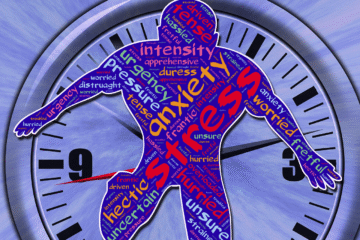 Sleep and stress are deeply connected, influencing each other in ways that can either boost or harm your well-being. Poor sleep can amplify stress, while high stress can make it harder to fall asleep. Understanding this cycle can help you take control of both. Let’s break it down.
Sleep and stress are deeply connected, influencing each other in ways that can either boost or harm your well-being. Poor sleep can amplify stress, while high stress can make it harder to fall asleep. Understanding this cycle can help you take control of both. Let’s break it down.
When you don’t get enough quality sleep, your body struggles to regulate stress hormones like cortisol. A 2019 study in Sleep found that even one night of poor sleep (less than 6 hours) increased cortisol levels by 20% the next day. Elevated cortisol makes you feel jittery, anxious, and less able to cope with challenges. Over time, this creates a vicious cycle: stress keeps you awake, and lack of sleep heightens stress.
Sleep quality matters more than quantity. You might spend 8 hours in bed but wake up groggy if your sleep is fragmented. Deep sleep, or slow-wave sleep, is when your brain processes emotions and your body repairs itself. A 2020 study in Nature Communications showed that poor deep sleep correlates with higher anxiety levels, as the brain fails to “reset” emotionally overnight. REM sleep, where dreaming happens, also plays a role by helping you process emotional experiences. If these stages are disrupted—say, by late-night screen time or stress—you wake up less resilient.
On the flip side, stress disrupts sleep by keeping your brain in “fight or flight” mode. A 2017 study in Psychoneuroendocrinology found that people with chronic stress had 30% less deep sleep than those with lower stress. Stress triggers the release of adrenaline, which raises heart rate and keeps you alert, making it harder to relax into sleep.
So, how can you break this cycle? First, prioritize a consistent sleep schedule. Going to bed and waking up at the same time daily helps regulate your body’s internal clock. A 2018 study in Sleep Medicine Reviews showed that consistent sleep schedules improved sleep quality by 15% and reduced stress markers. Second, create a wind-down routine. Activities like reading or gentle stretching signal to your brain that it’s time to relax. Third, limit screen time before bed. Blue light from phones suppresses melatonin, a hormone that promotes sleep, by up to 50%, according to a 2021 Journal of Biological Rhythms study.
Small changes can make a big difference. For example, a 10-minute meditation before bed was shown in a 2019 Behavioral Sleep Medicine study to improve sleep quality and lower stress by 25%. By addressing sleep and stress together, you can create a positive feedback loop, where better sleep reduces stress, and less stress improves sleep.
In short, quality sleep acts like a reset button for your stress levels. By understanding their connection and making small tweaks to your routine, you can feel calmer, sharper, and more in control of your day.


